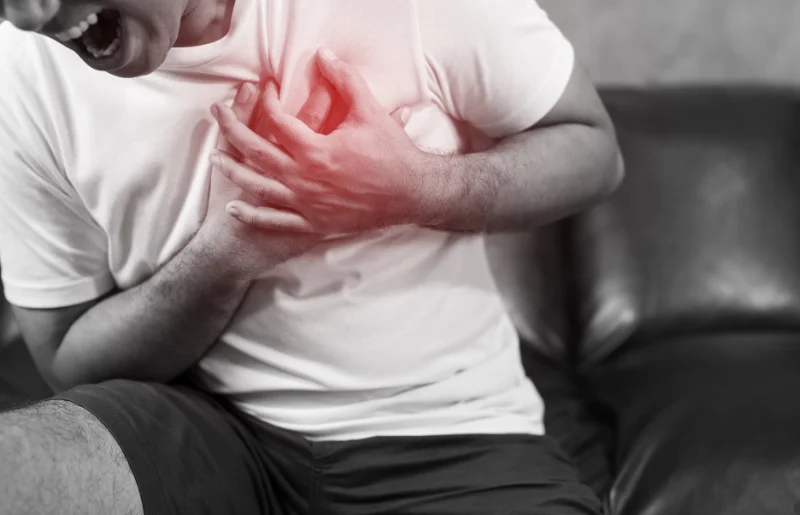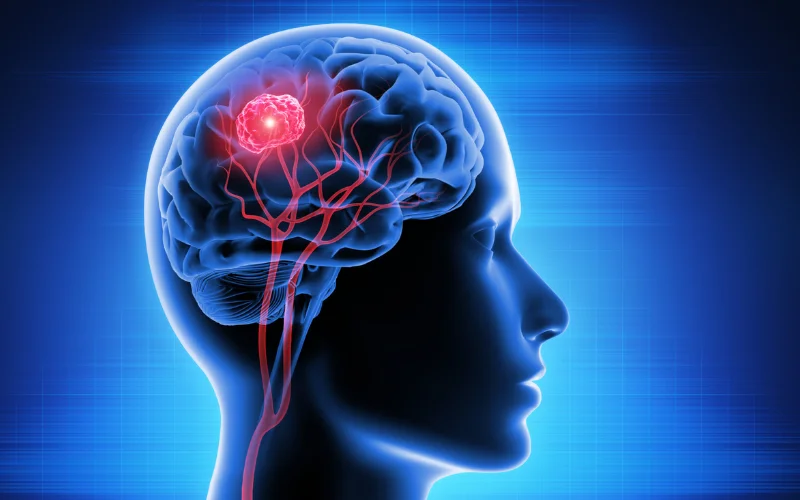Constipation is a common digestive issue that affects many individuals worldwide. While it is typically associated with abdominal discomfort, many people wonder, can constipation cause chest pain? This article explores the connection between constipation and chest pain, providing insights into symptoms, causes, and effective remedies. By understanding how constipation can impact your body, you can take steps to alleviate discomfort and improve your overall health.
Constipation can lead to a range of uncomfortable symptoms that extend beyond the digestive system. This article will delve into what constipation is, its common causes, and how it can potentially lead to chest pain and shortness of breath. Additionally, we will discuss treatment and prevention methods, as well as when to seek medical attention.
What is Constipation?

Constipation is characterized by infrequent bowel movements, difficulty passing stool, or the sensation of incomplete evacuation. It can be a temporary issue or a chronic condition affecting individuals of all ages. Understanding constipation is crucial to addressing its symptoms and preventing complications.
Symptoms of Constipation
- Fewer than three bowel movements per week
- Hard, dry, or lumpy stools
- Straining during bowel movements
- A feeling of blockage in the rectum
- Abdominal bloating and discomfort
Common Causes of Constipation

Constipation can result from various factors, including dietary habits, lifestyle choices, and underlying medical conditions.
Dietary Factors
A diet low in fiber and high in processed foods can contribute to constipation. Fiber helps to bulk up stool and promote regular bowel movements. Dehydration is another critical factor; insufficient water intake can lead to hard, dry stools that are difficult to pass.
Lifestyle Factors
A sedentary lifestyle can slow down the digestive system, leading to constipation. Ignoring the urge to have a bowel movement can also contribute to the problem, as it can make stool more difficult to pass over time.
Medical Conditions
Certain medical conditions can lead to constipation, including:
- Irritable Bowel Syndrome (IBS): A chronic condition that affects the large intestine.
- Hypothyroidism: An underactive thyroid gland, including the digestive system, can slow down metabolism.
- Diabetes: High blood sugar levels can damage nerves in the digestive system, leading to constipation.
Can Constipation Cause Chest Pain?

While constipation primarily affects the digestive system, it can also cause discomfort in other body parts, including the chest. Here’s how:
- Pressure on the Diaphragm: Severe constipation can lead to increased pressure in the abdomen, which may push against the diaphragm and cause chest discomfort.
- Referred Pain: The nerves in the digestive tract are closely connected to those in the chest. As a result, pain or discomfort in the abdomen can sometimes be perceived as chest pain.
- Gas and Bloating: Constipation often leads to excessive gas and bloating, which can cause a sensation of tightness or pain in the chest area.
Constipation and Shortness of Breath

Constipation can lead to more than just abdominal discomfort; it can also cause shortness of breath. When the intestines are filled with hard, dry stool, the increased pressure in the abdomen can push against the diaphragm. This pressure can make it difficult to take deep breaths, leading to a sensation of breathlessness. Additionally, the buildup of gas and bloating associated with constipation can further exacerbate this issue.
Individuals trying to lose weight might experience constipation as a side effect of dietary changes or reduced calorie intake. This can create a vicious cycle where the discomfort from constipation, including shortness of breath and even chest pain, makes it harder to maintain a healthy lifestyle. Understanding the link between constipation and these symptoms is crucial for effective management and prevention.
Medical Conditions Linking Constipation and Chest Pain

Certain medical conditions can exacerbate the relationship between constipation and chest pain:
- Gastroesophageal Reflux Disease (GERD): This condition can cause chest pain and is often associated with constipation.
- Hiatal Hernia: A condition where part of the stomach pushes through the diaphragm, leading to chest pain and constipation.
- Cardiac Conditions: While less common, severe constipation can sometimes lead to increased strain on the heart, causing chest pain.
Treatment and Prevention Methods

Effectively managing constipation and preventing its associated symptoms, such as chest pain and shortness of breath, involves dietary changes, lifestyle modifications, and, in some cases, medical interventions. Below are some detailed strategies to help alleviate and prevent constipation.
Dietary Changes
Making smart dietary choices can significantly improve bowel movements and prevent constipation.
Increase Fiber Intake
A diet rich in fiber can significantly improve bowel movements. Incorporate various fiber-rich foods such as fruits, vegetables, whole grains, and legumes. These foods help add bulk to the stool, making it easier to pass.
Stay Hydrated
Adequate hydration is essential for preventing constipation. Drinking plenty of water helps keep the stool soft. Aim for at least 8 glasses of water daily, and consider herbal teas as a supplementary option.
Limit Processed Foods
Processed foods often lack fiber and are high in fat, slowing digestion. To promote better digestive health, opt for natural, whole foods and reduce your intake of high-fat, processed items.
Lifestyle Modifications
Incorporating certain lifestyle changes can help maintain regular bowel movements and overall digestive health.
Regular Exercise
Physical activity stimulates intestinal contractions, which can help move stool through the colon. To promote regular bowel movements, engage in regular exercise such as walking, jogging, or yoga.
Establish a Routine
Setting aside a specific time each day for bowel movements can help train your body to have regular bowel movements. Listen to your body’s natural signals and respond promptly to the urge to go.
Over-the-Counter Remedies
Sometimes, over-the-counter remedies can provide quick relief from constipation and its symptoms.
Laxatives
There are various types of laxatives available, including bulk-forming, stimulant, and osmotic laxatives. These can provide short-term relief but should be used sparingly to avoid dependence.
Stool Softeners
Stool softeners add moisture to the stool, making it easier to pass. They can be useful for those experiencing hard stools, but they should only be used under medical advice.
Stress Management
Managing stress can be crucial in preventing constipation and promoting overall digestive health.
Relaxation Techniques
Stress can negatively impact digestive health. To manage stress levels and improve digestion, incorporate relaxation techniques such as meditation, deep breathing exercises, or yoga into your daily routine.
Adequate Sleep
Lack of sleep can affect digestive health. Establish a regular sleep routine to ensure you get enough rest. Aim for 7-9 hours of sleep per night to support overall well-being.
Medications and Constipation
Certain medications can cause constipation as a side effect. These include pain medications (especially opioids), antacids containing aluminum, and some antidepressants. If you suspect your medication is causing constipation, consult your healthcare provider for alternatives or solutions.
When to See a Doctor

It’s important to seek medical attention if you experience severe or persistent symptoms. Contact a healthcare professional if you notice severe or prolonged chest pain, difficulty breathing, cold sweats, nausea, or unexplained weight loss.
Conclusion
Constipation can cause chest pain due to the pressure it exerts on the diaphragm, referred pain, and gas buildup. By understanding the connection between constipation and chest pain, you can take proactive steps to alleviate discomfort and improve your digestive health. Incorporating dietary changes, lifestyle modifications, and over-the-counter remedies can help you manage constipation effectively. Always consult with a healthcare professional if you experience severe or persistent chest pain to rule out other serious conditions.
FAQs
1. Can constipation cause chest pain similar to a heart attack?
Yes, constipation can cause chest pain that may feel similar to a heart attack due to pressure on the diaphragm and referred pain. However, it’s crucial to seek medical attention if you experience severe or prolonged chest pain to rule out heart-related issues.
2. How can I differentiate between chest pain from constipation and heart-related chest pain?
Symptoms like abdominal bloating and discomfort often accompany chest pain from constipation. Heart-related chest pain may include shortness of breath, sweating, and nausea. If in doubt, seek immediate medical attention.
3. What are some natural remedies for relieving constipation and associated chest pain?
Natural remedies include increasing fiber intake, staying hydrated, engaging in regular physical activity, and establishing bowel movement routines. Over-the-counter remedies like stool softeners can also provide relief.







